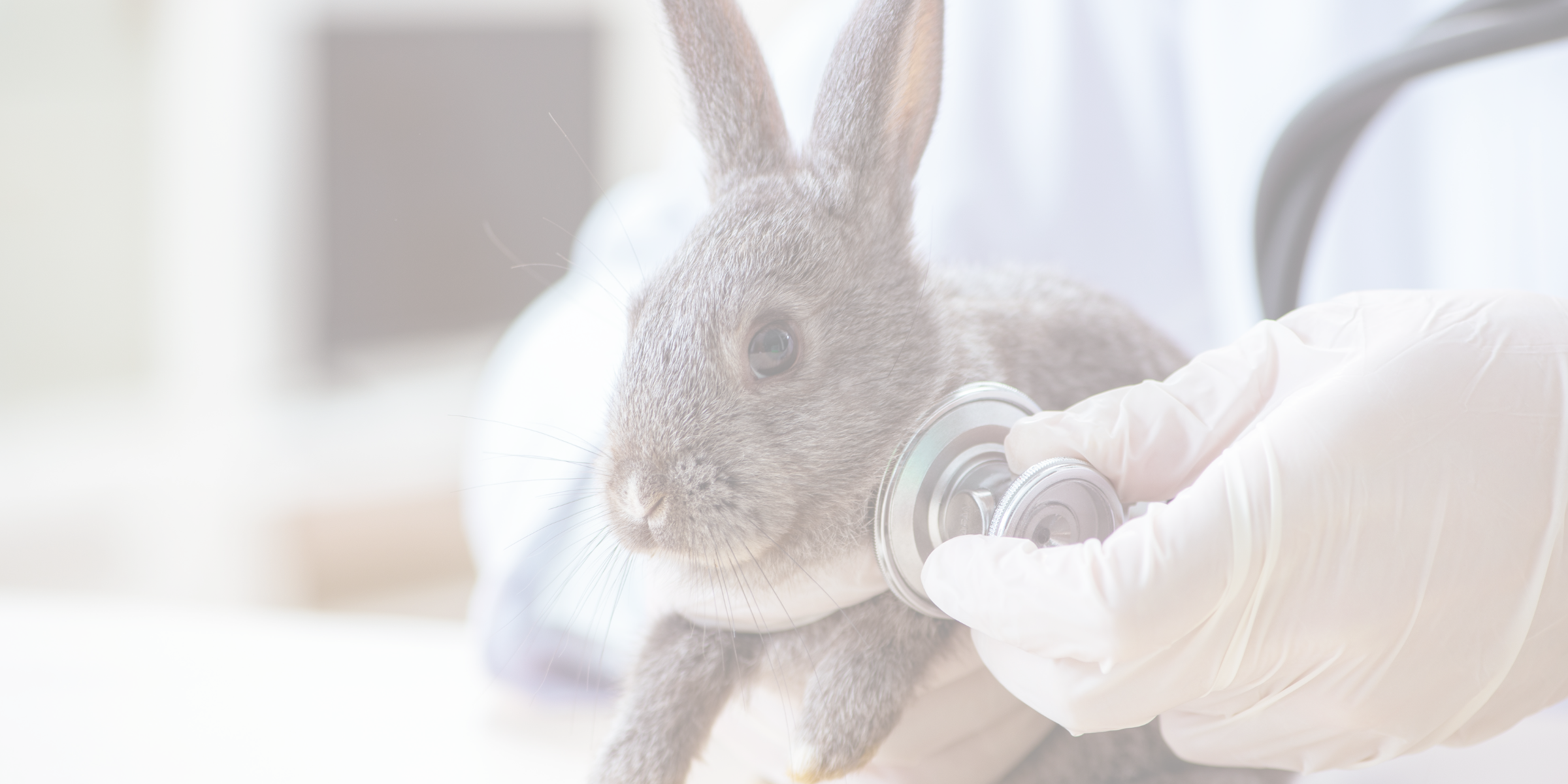
Stay Hoppy, Stay Healthy
Common Health Concerns
Rabbits are masters at hiding illness, so even small changes in behavior, appetite, or droppings can be early warning signs. Daily observation is key, and any concerns should be brought to an experienced rabbit vet right away. Early intervention can make all the difference
-
What it is: A potentially life-threatening slowdown or stoppage of the digestive system.
Symptoms: Loss of appetite, small or no droppings, lethargy, bloated abdomen, teeth grinding.
What to do: This is an emergency. Contact a rabbit knowledgeable vet immediately. GI stasis requires rapid intervention, fluids, medication, and supplemental feeding.
-
What it is: Rabbits are very sensitive to heat and need constant access to water.
Symptoms: Panting, lethargy, warm ears, disorientation.
What to do: Keep rabbits cool and hydrated, especially in summer. Immediate vet attention is needed for heat stroke.
-
What it is: Overgrown teeth or tooth misalignment that causes pain and eating issues.
Symptoms: Drooling, difficulty eating, dropping food, facial swelling, watery eyes.
What to do: Regular checkups are essential. Feed plenty of hay, which naturally files teeth, and watch for early signs of discomfort.
-
What it is: External or internal parasites that can cause itching, hair loss, neurological issues, or kidney damage.
Symptoms: Scratching, fur loss, crusty ears, unsteady movement, head tilt.
What to do: A vet can diagnose and treat parasites. Never use over-the-counter meds without guidance—they can be toxic to rabbits.
-
What it is: Bacterial or dental-related infections that cause discharge or irritation.
Symptoms: Watery, red, swollen, or crusty eyes.
What to do: Keep the area clean and see a vet asap.
-
What it is: Often bacterial, these infections affect breathing and can be serious.
Symptoms: Sneezing, nasal discharge, wheezing, lethargy, loss of appetite.
What to do: Early vet care is key. Avoid drafts and monitor closely—rabbits hide illness well.
-
What it is: Abscesses, tumors, or cysts beneath the skin.
Symptoms: Unusual swellings, discomfort, reluctance to be touched.
What to do: Have any abnormal growths examined by a vet. Early detection can make a big difference.
-
What it is: A rare but serious condition where the colon becomes enlarged and loses its ability to move waste properly—can be congenital or develop over time.
Symptoms: Chronic soft stool or diarrhea, large or oddly shaped fecal pellets, weight loss, bloating, and lethargy.
What to do: Seek exotic vet care immediately. A high-fiber diet, fluid support, and medication may help manage symptoms. Early intervention improves quality of life. description
-
What it is: A neurological condition where a rabbit’s head tilts to one side, often caused by inner ear infections, E. cuniculi (a parasite), or trauma. It affects balance and coordination, and in severe cases, can lead to rolling or inability to stand.
Symptoms: Noticeable tilt of the head, loss of balance, circling, rolling, difficulty eating or grooming, rapid eye movement (nystagmus), and lethargy.
What to do: Contact an exotics vet. Treatment may include antibiotics, antiparasitics (like fenbendazole), anti-inflammatories, and supportive care (fluids, syringe feeding, bedding support). Early treatment improves the chances of recovery or adaptation — many bunnies live happily with a permanent tilt.
When in doubt, call your vet!
If something seems off, don’t wait. It’s always better to be safe and get a professional opinion. Rabbit-savvy vets make all the difference.
Need help finding a rabbit vet?
Visit our Resources Page to find one close to you
